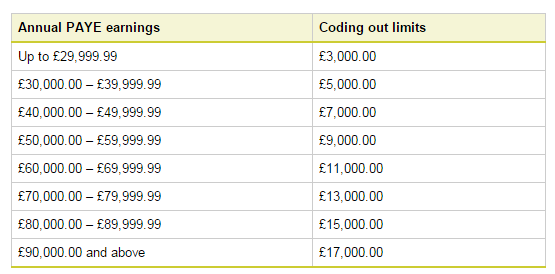We’re
almost approaching the end of 2014. What have you got done this year, and what
will you get done during 2015?
I
must confess, I used to be terrible at managing my time. And even now, whilst I
manage my time fiercely, I still have to work at it. There’s no short cut. It
takes real discipline to ruthlessly manage your time. However, what I do know
is that there is a VERY high correlation between success and how well a
business owner manages their time. Ultimately, the more you get done, the more
successful you’ll be. Of course, you can be a busy fool. But the more time you
give yourself to improve your business, your own development and the people
around you—the more successful you’ll be.
But
time is ALWAYS against you. Don’t you feel that the older you get, the quicker
time passes? I’m not sure why this is, but each year seems to pass more quickly
than the previous one. The days, weeks and months seem to roll into one, and
before you know it 6 months have passed. You’re left wondering, ‘Where did thetime go?’
Now
that’s okay as long as you plan your year out AND manage your time ruthlessly.
However, most people spend more time planning their holidays than planning
THEIR YEAR AHEAD.
If
you plan - you get more done, much more done. If you fail to plan and set
goals, it’s surprising how little you’ll accomplish.
All
the high achievers and successful people in this world identify planning and
goal-setting as a major contributor to their success.
Why?
Because in addition to giving them a clear roadmap, it also helps them plan
their daily/weekly/monthly schedules, and effective management of time enables
them to get more work done in a week than most other people get done in a
month.
Now,
I’m not going to spend any time talking about goal-setting (I’ve covered this
before), but what I’d like to talk about are a few proven tips and strategies
I’ve learned along the way, which have made me “one of the most prolific ‘work
machines’ on the planet” (not my own words!). I promise you, getting stuff done
is a crucial skill you can learn—but one that will ensure you reach your goals
and dreams quicker than you ever thought possible. But mark my words…
None
of this is easy. You have to be selfish with your time. People around you will
NOT like it (until you’ve ‘trained’ them in your new ways). You’ll find it easy
to slip back into your bad habits, but you must fight, and fight hard, to stay
the course. Of all the main attributes surrounding success, managing your time
effectively, whilst not easy to do, is certainly one of the easiest to acquire
and develop.
management
of your time is a very potent weapon (and, conversely, poor management of time
can be a real business growth inhibitor).
The
good news is that you can significantly improve your output if you follow my
simple ‘5 Key Time-Management Tips For High Performers’.
Planning:
Plan
each month and then each week and then each day based on your goals.
The
key here is to establish what you need to do each month to accomplish your
goals.
Then
break these tasks down to weekly and then daily tasks. You must always prioritise these
‘goal-orientated tasks’ before ‘general tasks’.
You’re
probably thinking—this will take a lot of thought and time to plan out. You’re
right. It does. That’s why so few people do it. That’s why so few people
succeed in life.
Do
not underestimate the power of carrying out this first step—it is the key to
your success.
Work
During Your High-Performance Times: You’ll get much more
done in times when your body is alert and active.
For
me, this time is 5.30am-1pm and 8pm-11pm (but you’ll know when you’re at your
best). The worst times are generally
after eating! My performance drops significantly after lunch. So I do all my
writing in the mornings and other less important work in the afternoons.
It’s
during these high-performance times that you should carry out your
‘Goal-Orientated Tasks’. This one step
alone will improve your output significantly—so make sure you only allocate
this time to the important tasks!
Use
the less productive times for ‘general tasks’ and meetings.
Here’s
why using your high-performance time is so important…
1. Since our minds are more active and fresh, we can get more
done.
2. Concentrating on the task at hand is much easier.
3. Our creative juices are flowing when our minds are more
active and alert.
Block
Out Your High-Performance Times: Next, make sure you block out your
high-performance times and under no circumstances let other things get in the
way.
Again,
this is key to your success. Treat your high-performance times as compulsory
appointments (in other words, you can’t cancel them).
If
you have a secretary or PA, make sure they understand these ‘appointments’ are
never to be broken and replaced with anything else.
Resist
All Distractions: During your high-performance times, turn off
your mobile, take your office phone off the hook and don’t open your e-mail
programme.
Even
one interruption can set you back an extra 15-30 minutes, not including the
time of the interruption.
This
does take a high level of discipline. In the early days you’ll find the
temptation of leaving your phone or e-mail programme on hard to resist, but I
promise you, if you cave in, this will slash your effectiveness by at least
50%.
Once
you force yourself to reduce your distractions to zero, you’ll find it very
liberating!
For
example, as I’m writing this newsletter, it’s 8.52am. My phone is turned off.
My e-mail is turned off. I am NOT contactable by anyone (not even my wife, no
matter how hard she tries! - although now ‘she gets it’ so doesn’t
bother).
Seriously,
this one discipline will make a massive difference to how much work you get
done. Not one in 100,000 people have the mindset to do this, so mastering it
will put you on a productivity level way above 98% of people around the globe.
Tell
Staff (and Family): You must explain to staff and family that,
unless it’s an emergency, you are not to be disturbed during your
high-performance times.
If
your wife (or husband) is anything like mine, it will take time for them to
realize you’re serious about this. Helen didn’t even think she used to
interrupt me, so every time she did, I made a note of it. That did the
trick!!
By
adhering to these 5 key time-management tips, I guarantee you’ll get so much
more done. This translates to greater income and more success.
The important thing is
to discipline yourself. If it was easy to do these things, everyone would be
doing them. The fact is, most people lack real discipline. And getting a high
volume of stuff done requires real discipline. You can do it if you put your
mind to it. But you have to work hard at it!








